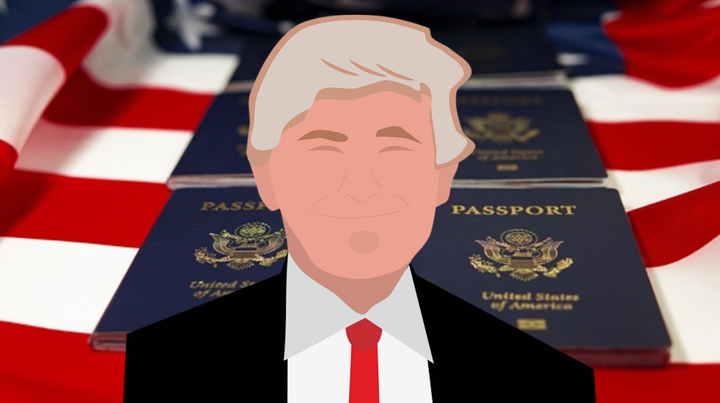Why did Harris lose the 2024 U.S. Election?

Zaid Khan
In the lead-up to the 2024 U.S. presidential election, most national polls indicated a tight race between former President Donald Trump and Vice President Kamala Harris, and it’s safe to say that the rollercoaster of events witnessed on election night emphasised just how narrowly contested the race was.
The 2024 U.S. election was one of the most closely watched and contentious races in recent history. Kamala Harris, the first female Vice President, as well as the Democratic nominee, who advocated for criminal justice reform, economic equity, and civil rights, faced off against Donald Trump, who prioritised border security, law enforcement and foreign policy, and who also ultimately mounted a successful political comeback. Despite initial optimism within the Democratic Party, Harris lost the 2024 election by 86 electoral votes. So, let’s talk about: what were the errors in Kamala Harris’ 2024 election campaign?
The state of the American economy was the most important issue in the 2024 election. Voter opinion was significantly shaped by inflation, growing interest rates, and worries about job security. The Biden-Harris administration made an effort to solve these problems, but many Americans were still negatively impacted by the high cost of necessities. According to exit polls, 75% of voters claimed that inflation had negatively impacted their lives, and 68% of voters had a poor opinion of the economy.
Donald Trump capitalised on distaste towards the Democratic Party by emphasising domestic energy production and ‘rebuilding the American economy’, which resonated particularly in battleground states where economic issues were top concerns. During a campaign rally in Pennsylvania, Trump stated that, ‘People are struggling, and they know I can fix it.’ Both Wall Street and working-class people were convinced that he could bring economic stability back by his dedication to deregulation and business-friendly policies.
In addition to this, Harris found it difficult to disassociate herself from Joe Biden's record, and her efforts to emphasise salary gains and job development fell flat, with people who were still feeling the pinch of debt. Many independent and undecided voters switched to Trump in crucial swing states like Michigan and Wisconsin due to economic uncertainty. In the end, Harris was burdened by Biden's financial difficulties, which made it difficult for her to win over dissatisfied voters; thus, Harris' failure was largely caused by her incapacity to successfully address economic issues and win over working-class voters.
Secondly, Hollywood orientation and celebrity endorsements were key components of Kamala Harris' campaign, but in the end, this approach backfired, alienating working-class voters and confirming the idea that she was disconnected from the average American. Harris was promoted by celebrities like Taylor Swift, George Clooney, and Oprah Winfrey, and her rallies frequently included celebrities from the entertainment industry rather than policymakers. Although this strategy inspired some younger voters, it did little to address issues that most Americans prioritised. One political observer stated that, ‘She spent more time with celebrities than she did with struggling families.’
Trump, on the other hand, took advantage of this divide by positioning himself as the candidate of the average person and attacking Harris for belonging to the ‘liberal elite.’ Due (in significant part) to his emphasis on the topics that Americans cared about, Donald Trump's 2024 campaign was more successful than Kamala Harris', which placed an undue emphasis on identity politics and celebrity endorsements. Trump's message was straightforward; he focused on the main issues that working-class Americans found important.
In battleground states like Pennsylvania and Arizona, he staged large rallies where he addressed people directly about issues like energy prices, inflation, and the shortcomings of ‘Bidenomics’; ‘Make America Great Again—Again’ was his catchphrase, which reaffirmed his appeal to people who felt left behind by the Biden-Harris government.
Thirdly, In the 2024 election, Kamala Harris' views on race and ethnicity had a complicated impact on both her supporters and detractors. Harris marked a turning point in American politics as the first woman of colour to be both a presidential nominee and vice president. Her popularity to progressive voters was largely based on her policies and language, which frequently addressed issues of racial equity, criminal justice reform, and voting rights protections. But during the election, this emphasis also became a source of conflict.
Her initiatives, including support for police reform, reparations talks, and affirmative action, were seen as divisive or overly progressive by some conservative and moderate voters. Furthermore, although Harris continued to enjoy high support from Black women, her campaign found it difficult to hold onto the larger coalition of minority voters that had contributed to Democrats' victory in 2020. Despite Harris' frequent discussions of racial fairness and equity, many people saw her time as vice president as mainly symbolic and lacking in real-world impact. Even though Harris was still heavily favoured among Black women, a slight decline in enthusiasm and turnout had an impact in a close election.
Trump gained significant support from Black male and Latino voters, especially those who valued economic prospects over racial justice efforts. Voters who felt left out of the Democratic Party's emphasis on racial equity responded favourably to his campaign's framing of Harris' proposals as identity politics that put social justice ahead of economic progress.
Additionally, Harris' prior experience as a prosecutor, where she faced criticism for her tough-on-crime stance, made some Black voters sceptical, which decreased their enthusiasm in crucial swing states. She struggled to build the wide and varied coalition required to win the presidency as a result of Republican attacks, changing voter priorities, and persistent reservations about her record.
In conclusion, a combination of shifting voter demographics, strategic errors, and economic difficulties led to Kamala Harris' loss in the 2024 presidential election. Voters' discontent with inflation, job security, and general economic conditions ultimately burdened her campaign, despite her efforts to build on the achievements of the Biden administration. Important voting groups were further alienated by her reliance on celebrity endorsements and her campaign approach, which frequently seemed separated from working-class issues.
Moving forward, The Democratic Party needs to hone its approach by concentrating on important areas if it hopes to remain competitive in the next elections. Given that many voters in 2024 gave inflation, job security, and cost of living issues top priority, it is imperative to strengthen economic messaging. In order to reach a larger audience, the party should also increase voter outreach by striking a balance between identity-based appeals and policies that deal with public safety, education, and economic opportunity. Enhancing media and digital tactics can also aid in dispelling false information and more successfully involving younger and disenchanted voters.
Democrats can improve their chances of winning future elections and re-establish their electoral coalition by tackling these issues, if they learn from the mistakes Kamala Harris made in the 2024 U.S. Presidential election.




Comments ()